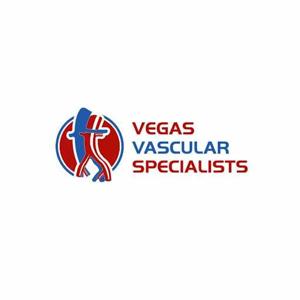
Maintaining vascular health is essential for overall well-being, yet many individuals overlook the importance of regular monitoring and preventive care. Scheduling appointments with vascular doctors in your area ensures that your circulatory system is functioning properly and helps detect potential issues before they become serious. Early intervention can prevent complications such as blood clots, varicose veins, and peripheral artery disease, all of which can significantly impact quality of life.
Understanding Vascular Health
Vascular health refers to the condition of your blood vessels, including arteries, veins, and capillaries, which play a crucial role in transporting blood, oxygen, and nutrients throughout the body. Poor vascular health can lead to restricted blood flow, causing symptoms such as swelling, pain, fatigue, and even more severe complications like a heart attack or stroke.
Vascular doctors are trained to diagnose, monitor, and treat conditions affecting the circulatory system. Their expertise ensures that both common and complex vascular issues are addressed effectively, helping patients maintain optimal blood flow and overall health.
Common Vascular Conditions
Several conditions underscore the importance of regular check-ups with vascular doctors:
Peripheral Artery Disease (PAD)
PAD occurs when arteries that supply blood to the limbs become narrowed or blocked. Early detection through regular monitoring can prevent progression and reduce the risk of severe complications, including limb ischemia or tissue damage.
Varicose Veins and Spider Veins
Vein specialists often treat varicose and spider veins, which may appear as bulging or twisted veins in the legs. Although often considered a cosmetic concern, untreated varicose veins can lead to discomfort, swelling, and more serious vascular issues over time.
Blood Clots and Deep Vein Thrombosis (DVT)
Blood clots can form in deep veins, typically in the legs, posing a risk of traveling to the lungs and causing a pulmonary embolism. Regular vascular check-ups allow doctors to identify risk factors and implement preventive measures before clots develop.
Aneurysms
An aneurysm occurs when a weakened section of a blood vessel wall bulges or balloons, potentially leading to rupture. Vascular doctors can monitor at-risk patients and recommend timely interventions to prevent life-threatening complications.
The Role of Vascular Check-Ups
Regular visits to vascular doctors in your area provide multiple benefits:
Early Detection
Routine examinations allow doctors to detect problems before they become serious. Screening tests, including ultrasound, ankle-brachial index, and other diagnostic tools, can identify early signs of arterial blockages, vein insufficiency, or abnormal blood flow.
Personalized Treatment Plans
Vascular doctors can tailor treatment plans based on individual health conditions, lifestyle, and risk factors. Whether recommending minimally invasive procedures, medication, or lifestyle modifications, these plans help patients manage vascular health proactively.
Preventive Care Guidance
Vein specialists provide valuable guidance on diet, exercise, and habits that promote vascular health. Preventive care, combined with early detection, significantly reduces the risk of complications such as heart disease, stroke, or chronic venous insufficiency.
Improved Quality of Life
Regular check-ups address issues that may cause pain, swelling, or fatigue, ultimately improving mobility and comfort. Patients often experience enhanced daily functioning and reduced anxiety about potential vascular problems.
Choosing the Right Vascular Doctor
When looking for vascular doctors, consider experience, credentials, and patient reviews. Specialists like Dr Luh offer comprehensive care, advanced diagnostic testing, and modern treatment options. Ensuring that your doctor is skilled in both preventive care and intervention strategies provides confidence and peace of mind.
Conclusion
Scheduling routine visits with vascular doctors in your area is a proactive step toward maintaining a healthy circulatory system and preventing serious complications. From early detection of peripheral artery disease and varicose veins to managing risk factors for blood clots and aneurysms, regular check-ups are essential for long-term vascular health. Patients seeking expert guidance can rely on specialists to provide personalized care, advanced diagnostics, and treatment strategies that support overall wellness.



Write a comment ...